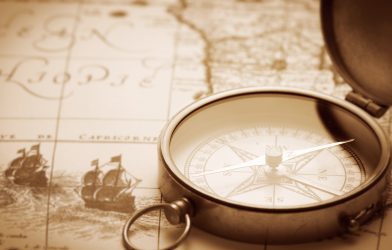Throughout ancient history, numerous civilizations made groundbreaking discoveries in math and science, laying the foundation for the advancements we rely on today. This exploration uncovers key contributions from ancient cultures and highlights their enduring influence on modern applications.
The Pythagorean Theorem: Bridging Geometry and Algebra
Ancient Greece, particularly through the work of Pythagoras, profoundly impacted mathematics with the Pythagorean Theorem. This principle, relating the sides of a right triangle, is a cornerstone in geometry and algebra. Its applications extend beyond mathematics into fields like physics, engineering, and computer science, where it underpins the design and analysis of structures and algorithms.
Archimedes’ Principles: Foundations of Fluid Mechanics and Physics
Archimedes, another Greek luminary, contributed significantly to physics and engineering. His principle of buoyancy explains why objects float or sink, which is crucial in designing ships and submarines. His work on levers and pulleys underpins mechanical engineering, illustrating fundamental principles of force and motion still taught in physics today.
Indian Numerals and Zero: Revolutionizing Mathematics and Commerce
The ancient Indian civilization introduced the concept of zero and the decimal system, transforming mathematics. The use of zero as a placeholder and a number in its own right enabled more complex calculations and the development of algebra. These concepts were later transmitted to the Islamic world and Europe, forming the basis of the number system we use globally today.

Islamic Golden Age: Algebra and Optics
During the Islamic Golden Age, scholars like Al-Khwarizmi and Ibn al-Haytham made significant strides in algebra and optics. Al-Khwarizmi’s work in algebra (al-jabr) laid the groundwork for modern algebraic methods. Ibn al-Haytham’s studies in optics led to the understanding of vision and light, influencing modern fields such as ophthalmology and optical engineering.
Chinese Innovations: Papermaking, Printing, and Early Seismology
Ancient China made remarkable contributions with inventions like papermaking and printing, which revolutionized information dissemination and education. The seismoscope, an early earthquake-detecting device developed by Zhang Heng, represents one of the first attempts to understand and measure seismic activity, a field critical to modern geology and earthquake engineering.
Mayan Astronomy and Calendar Systems: Precision and Predictive Power
The Mayan civilization excelled in astronomy and calendar systems, creating highly accurate calendars based on celestial observations. Their understanding of planetary cycles and solar movements informed agricultural planning and religious ceremonies, showcasing early examples of applied astronomy that parallel modern efforts in space exploration and timekeeping.
Roman Engineering: Roads, Aqueducts, and Concrete
Roman engineering achievements, such as the construction of extensive road networks, aqueducts, and the development of concrete, illustrate practical applications of scientific principles. These innovations not only facilitated the expansion of the Roman Empire but also laid the groundwork for modern civil engineering and infrastructure development.
Egyptian Mathematics and Medicine: Precision and Practice
Ancient Egyptians made significant advances in both mathematics and medicine. Their use of geometry for land measurement and architectural precision is evident in the construction of the pyramids. In medicine, the Edwin Smith Papyrus reveals sophisticated surgical practices and an understanding of anatomy that predate many later discoveries.
The discoveries and innovations of ancient civilizations are more than historical artifacts; they are the bedrock of modern math and science. By understanding and appreciating these ancient contributions, we gain insights into the cumulative nature of human knowledge and its application to solving contemporary problems. The enduring legacy of these ancient pioneers underscores the importance of preserving and studying historical advancements as we continue to build upon their foundations in our quest for knowledge and progress.














